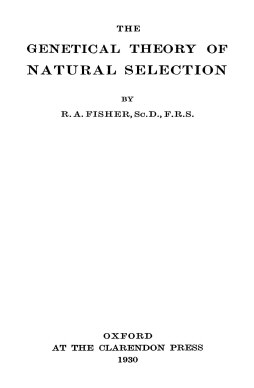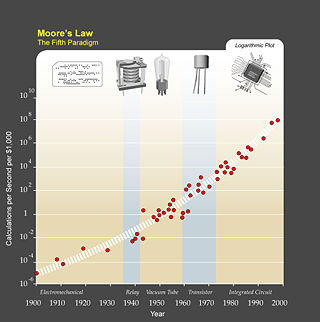
Eugenics is a set of beliefs and practices that aim to improve the genetic quality of a human population. Historically, eugenicists have attempted to alter the frequency of various human phenotypes by inhibiting the fertility of people and groups they considered inferior, or promoting that of those considered superior.

Sir Francis Galton was a British polymath and the originator of eugenics during the Victorian era; his ideas later became the basis of behavioural genetics.

Sir Julian Sorell Huxley was an English evolutionary biologist, eugenicist, and internationalist. He was a proponent of natural selection, and a leading figure in the mid-twentieth century modern synthesis. He was secretary of the Zoological Society of London (1935–1942), the first director of UNESCO, a founding member of the World Wildlife Fund, the president of the British Eugenics Society (1959–1962), and the first president of the British Humanist Association.

Karl Pearson was an English biostatistician and mathematician. He has been credited with establishing the discipline of mathematical statistics. He founded the world's first university statistics department at University College London in 1911, and contributed significantly to the field of biometrics and meteorology. Pearson was also a proponent of Social Darwinism and eugenics, and his thought is an example of what is today described as scientific racism. Pearson was a protégé and biographer of Sir Francis Galton. He edited and completed both William Kingdon Clifford's Common Sense of the Exact Sciences (1885) and Isaac Todhunter's History of the Theory of Elasticity, Vol. 1 (1886–1893) and Vol. 2 (1893), following their deaths.

The Genetical Theory of Natural Selection is a book by Ronald Fisher which combines Mendelian genetics with Charles Darwin's theory of natural selection, with Fisher being the first to argue that "Mendelism therefore validates Darwinism" and stating with regard to mutations that "The vast majority of large mutations are deleterious; small mutations are both far more frequent and more likely to be useful", thus refuting orthogenesis. First published in 1930 by The Clarendon Press, it is one of the most important books of the modern synthesis, and helped define population genetics. It had been described by J. F. Crow as the "deepest book on evolution since Darwin".

The term racial hygiene was used to describe an approach to eugenics in the early 20th century, which found its most extensive implementation in Nazi Germany. It was marked by efforts to avoid miscegenation, analogous to an animal breeder seeking purebred animals. This was often motivated by the belief in the existence of a racial hierarchy and the related fear that "lower races" would "contaminate" a "higher" one. As with most eugenicists at the time, racial hygienists believed that the lack of eugenics would lead to rapid social degeneration, the decline of civilization by the spread of inferior characteristics.

Paul Bowman Popenoe was an American marriage counselor, eugenicist and agricultural explorer. He was an influential advocate of the compulsory sterilization of mentally ill people and people with mental disabilities, and the father of marriage counseling in the United States.

Futures studies, futures research, futurism research, futurism, or futurology is the systematic, interdisciplinary and holistic study of social/technological advancement, and other environmental trends; often for the purpose of exploring how people will live and work in the future. Predictive techniques, such as forecasting, can be applied, but contemporary futures studies scholars emphasize the importance of systematically exploring alternatives. In general, it can be considered as a branch of the social sciences and an extension to the field of history. Futures studies seeks to understand what is likely to continue and what could plausibly change. Part of the discipline thus seeks a systematic and pattern-based understanding of past and present, and to explore the possibility of future events and trends.
The Adelphi Genetics Forum is a non-profit learned society based in the United Kingdom. Its aims are "to promote the public understanding of human heredity and to facilitate informed debate about the ethical issues raised by advances in reproductive technology."

Three International Eugenics Congresses took place between 1912 and 1932 and were the global venue for scientists, politicians, and social leaders to plan and discuss the application of programs to improve human heredity in the early twentieth century.

Thomas Jeeves Horder, 1st Baron Horder, was a British physician best known for his appointments as physician-in-ordinary to Kings Edward VII, George V, and George VI, and extra physician to Queen Elizabeth II. He was also the chosen physician of three prime ministers. He was knighted in 1918, made a baronet in 1923 and raised to the peerage in 1933.
Aspects of philosopher, mathematician and social activist Bertrand Russell's views on society changed over nearly 80 years of prolific writing, beginning with his early work in 1896, until his death in February 1970.

Theodore Lothrop Stoddard was an American historian, journalist, political scientist and white supremacist. Stoddard wrote several books which advocated eugenics, white supremacy, Nordicism, and scientific racism, including The Rising Tide of Color Against White World-Supremacy (1920). He advocated a racial hierarchy which he believed needed to be preserved through anti-miscegenation laws. Stoddard's books were once widely read both inside and outside the United States.
Eva Marian Hubback was an English feminist and an early advocate of birth control and eugenics.
The history of eugenics is the study of development and advocacy of ideas related to eugenics around the world. Early eugenic ideas were discussed in Ancient Greece and Rome. The height of the modern eugenics movement came in the late 19th and early 20th centuries.
Halliday Gibson Sutherland (1882–1960) was a Scottish medical doctor, writer, opponent of eugenics and the producer of Britain's first public health education cinema film in 1911.

H. G. Wells (1866–1946) was a prolific English writer in many genres, including the novel, history, politics, and social commentary, and textbooks and rules for war games. Wells called his political views socialist.
Mary Barton was a British obstetrician who, in the 1930s, founded one of the first fertility clinics in England to offer donor insemination. Throughout her career, Barton studied infertility and conception. Her pioneering research and practice were inspired by experience as a medical missionary in India, where she saw the harsh treatment of childless women.

Eugenic feminism was a current of the women's suffrage movement which overlapped with eugenics. Originally coined by the Lebanese-British physician and vocal eugenicist Caleb Saleeby, the term has since been applied to summarize views held by prominent feminists of Great Britain and the United States. Some early suffragettes in Canada, especially a group known as The Famous Five, also pushed for various eugenic policies.

John Percy Lockhart-Mummery FRCS, was a British surgeon at St Mark's Hospital, London, who devised a classification of rectal cancer and described familial polyposis which led to the formation of the polyposis registry. He was the author of several books, including Diseases of the Rectum and Colon and their Surgical Treatment (1923), The Origin of Cancer (1934), and After Us, or the World as it Might Be (1936). His work on colorectal surgery earned him the nickname "King Rectum".













